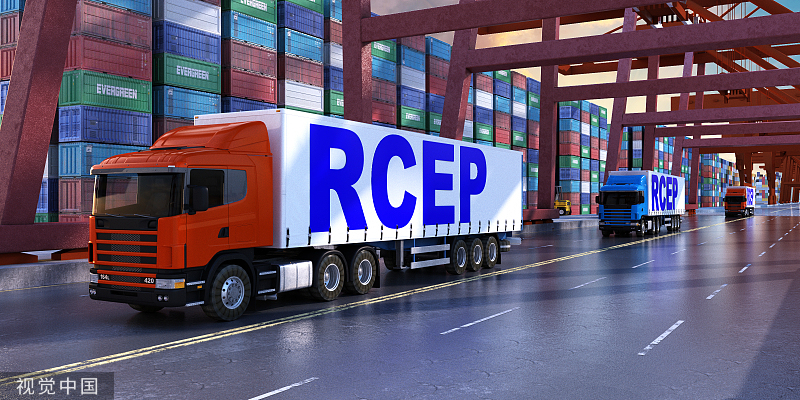'Game-changing' trade pact ratified in Manila


Ratification of the Regional Comprehensive Economic Partnership, or RCEP, will inject fresh momentum into the Philippines' post-pandemic recovery and long-term development, with expected increases in investments and exports, analysts say.
The Philippines is the last of the 15 member countries to ratify the RCEP, which took effect on Jan 1 last year. After senators passed a resolution on the pact on Feb 21, Arsenio Balisacan, secretary of socioeconomic planning, thanked lawmakers for "taking this bold and game-changing move", noting that the RCEP will provide "another engine "to grow the nation's economy and make it part of "rapidly rising Asia".
The RCEP aims to establish a unified market by reducing tariffs and non-tariff barriers. The signatories are the 10 members of the Association of Southeast Asian Nations — Brunei, Cambodia, Indonesia, Laos, Malaysia, Myanmar, the Philippines, Singapore, Thailand and Vietnam — together with Australia, China, Japan, South Korea and New Zealand.
RCEP members account for about one-third of the global population and 30 percent of the world's GDP.
Ruben Carlo Asuncion, chief economist of Union Bank of the Philippines, said the ratification was "a step in the right direction for emerging economies like the Philippines".
"This is a win for the Philippines' trade and economic growth," Asuncion said. RCEP is a crucial trade agreement, with its signatories accounting for 50 percent of the global manufacturing output, more than 20 percent of the global value chain trade volume and more than 30 percent of global exports of electronics and types of machinery, he said, pointing out that some of the world's biggest global value chain hubs are members of the pact.
Michael Ricafort, chief economist at Manila-based Rizal Commercial Banking Corp, said the RCEP will drive more foreign investments to the Philippines, which will in turn create more jobs, boost exports and expand local businesses.
Alicia Garcia-Herrero, chief economist for the Asia-Pacific with the French investment bank Natixis, said the expected benefits may just be a "small win" as the tariff reduction phase has a "very long transition period".
Member countries began signing the RCEP in November 2020.They agreed to eliminate tariffs on more than 90 percent of goods traded with fellow members. These tariffs will be gradually reduced over 20 years.
A study last year by the Philippine Institute for Development Studies estimated that participation in the RCEP would lead to a 2.02 percent increase in the Philippines' GDP.
Balisacan said the RCEP will strengthen the Philippines' position as "an ideal investment hub in the region", as ratifying the pact will expand market access, facilitate trade, and align Philippine rules and procedures with those of participating economies.
He added that the RCEP also complements the amended Retail Trade Liberalization Act, Foreign Investments Act, Public Service Act, and the Build-Operate-Transfer Law, all of which are meant to create a more investment-friendly environment in the country.
































